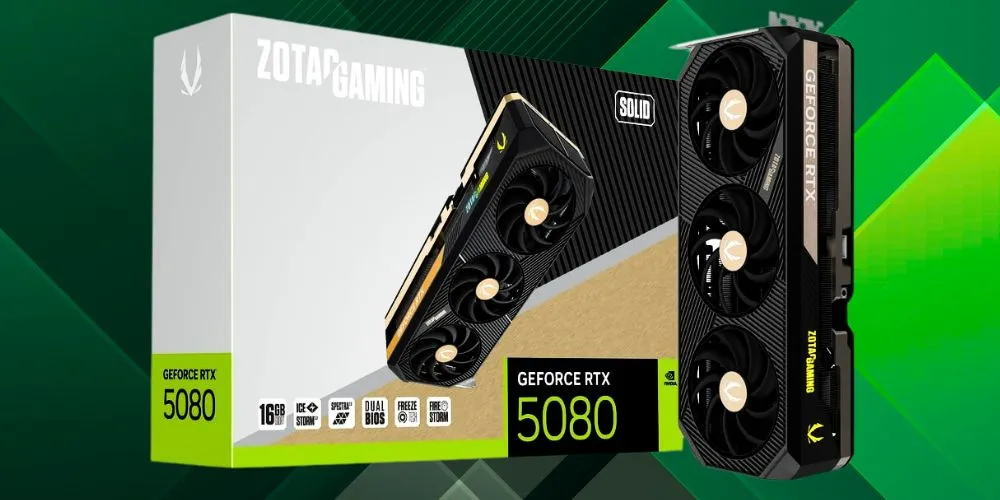Key Points
- MSI and Asus have increased prices on Nvidia RTX 5080 and 5090 GPUs by up to $300, with some Newegg listings showing even higher markups.
- MSI’s RTX 5090 lineup now costs between $2,379 and $2,789, while RTX 5080 models range from $1,139 to $1,299.
- Asus’s OG Astral OC RTX 5090 jumped from $2,799 to $3,079, and the PRIME RTX 5080 16GB increased from $999 to $1,264.99.
- Speculation suggests the increases are linked to Trump’s 10% tariffs on Chinese imports and planned tariffs on foreign-made chips.
MSI and Asus have raised prices on Nvidia’s GeForce RTX 5080 and 5090 graphics cards, with some models seeing increases of up to $300. The price hikes were first noticed on MSI’s online store, where archived pages revealed significant adjustments. Newegg also reflected similar increases, with some listings showing even higher markups.
Although MSI currently has no RTX 5000-series GPUs in stock, its price updates suggest that the company is preparing to charge more once inventory becomes available. The RTX 5090 lineup saw considerable price jumps, with the Gaming Trio OC model increasing from $2,349 to $2,639, the Suprim Liquid SOC rising from $2,499 to $2,789, and the Vanguard SOC Launch Edition climbing from $2,379 to $2,689. Meanwhile, the Ventus 3X OC model moved from $2,199 to $2,579, while the standard Ventus 3X version increased from $1,999 to $2,379.
The price hikes were not limited to the high-end RTX 5090 models. MSI’s RTX 5080 GPUs also saw substantial increases. The Ventus 3X edition rose from $999 to $1,139, while the Ventus 3X OC model jumped from $1,139 to $1,299. The Ventus 3X OC Plus variant increased from $1,139 to $1,269.
On Newegg, MSI’s price hikes were further exaggerated, with some GPUs listed at an additional $40 to $60 above MSI’s increases. Asus also adjusted its pricing, with the OG Astral OC GeForce RTX 5090 rising from $2,799 to $3,079. Similarly, the Asus PRIME GeForce RTX 5080 16GB saw its price surge from $999 to $1,264.99. Despite the price adjustments, many of these models remain out of stock, leaving consumers frustrated and concerned about future availability.
While there has been no official explanation for these price changes, speculation has linked the increases to the recently imposed 10% tariffs on all Chinese imports. Additionally, proposed tariffs on foreign-made chips, including those from Taiwan, could further drive up costs in the near future. These policies are expected to impact production expenses and steep GPU prices.
MSI declined to comment on the price hikes, while Asus, Nvidia, and Newegg have yet to respond. The sudden increase in GPU prices has sparked consumer frustration, with many blaming corporate greed and ongoing geopolitical trade policies. As the situation unfolds, customers remain uncertain whether prices will continue to rise or adjustments will be made to stabilize the market.










